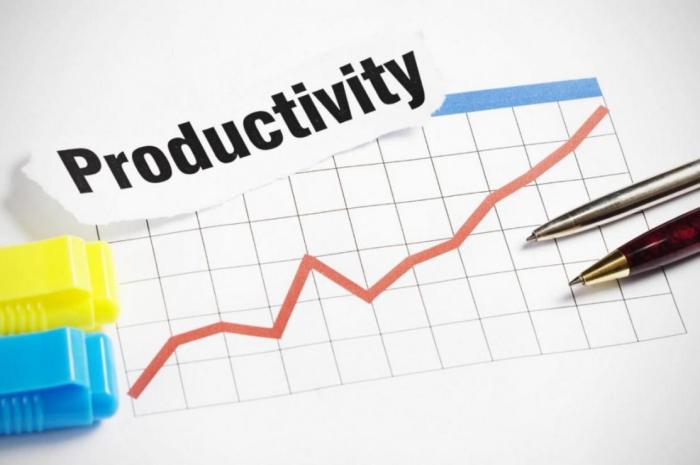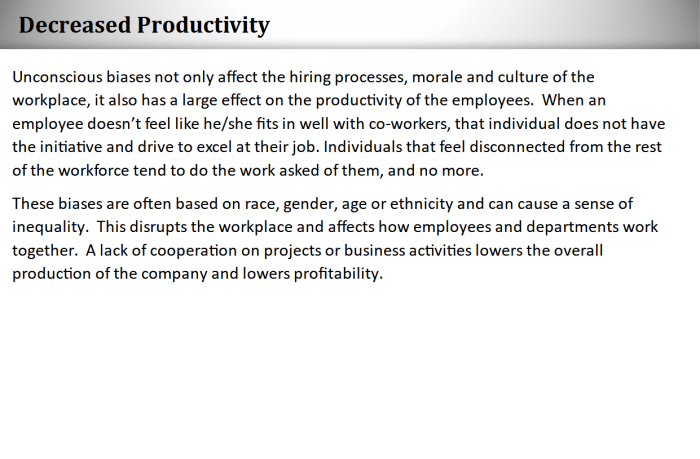Reappraisal often leads to higher stress and decreased productivity – Reappraisal, often touted as a beneficial stress management technique, surprisingly can lead to higher stress and decreased productivity. This opening paragraph delves into the psychological mechanisms underlying reappraisal, exploring its paradoxical effects on stress responses and cognitive processes.
Delving deeper, we will examine specific situations where reappraisal can exacerbate stress, identify tasks or domains where it may hinder productivity, and uncover the potential mechanisms through which it can hinder performance.
Impact of Reappraisal on Stress Levels

Reappraisal, a cognitive coping strategy, involves reinterpreting or reframing a stressful situation to reduce its perceived threat. While it is generally effective in mitigating stress, research suggests that in certain situations, reappraisal can lead to higher stress levels.
Examples of Reappraisal Leading to Increased Stress
- Overly Positive Reappraisal:Exaggeratedly positive interpretations can create unrealistic expectations, leading to disappointment and heightened stress when those expectations are not met.
- Inconsistent Reappraisal:Constantly changing interpretations of a stressor can create uncertainty and ambiguity, exacerbating stress levels.
- Reappraisal of Uncontrollable Situations:Reappraising uncontrollable events as controllable can increase feelings of self-blame and guilt, leading to increased stress.
Moderators of the Reappraisal-Stress Relationship
- Individual Differences:Personality traits (e.g., neuroticism) and coping styles can influence the effectiveness of reappraisal.
- Situational Factors:The nature of the stressor (e.g., threat level, ambiguity) and the availability of support systems can impact the outcomes of reappraisal.
Influence of Reappraisal on Productivity

Reappraisal can affect productivity through its impact on cognitive processes. While it can sometimes enhance focus and problem-solving, in other situations, it can lead to decreased productivity.
Specific Tasks and Domains Where Reappraisal May Hinder Productivity
- Complex Cognitive Tasks:Reappraisal can divert attention away from the task at hand, impairing performance.
- Time-Sensitive Tasks:Reappraisal can delay decision-making and action-taking, leading to missed deadlines.
- Repetitive Tasks:Reappraisal can disrupt the automatic processing involved in repetitive tasks, reducing efficiency.
Potential Mechanisms Hindering Productivity
- Cognitive Load:Reappraisal requires cognitive resources, which can be diverted from task-related processes.
- Emotional Interference:Reappraisal can trigger emotional responses that interfere with focus and performance.
- Attentional Narrowing:Reappraisal can narrow attention, limiting the consideration of alternative perspectives and solutions.
Moderating Factors in the Reappraisal-Stress-Productivity Relationship: Reappraisal Often Leads To Higher Stress And Decreased Productivity

Individual differences and situational factors can influence the impact of reappraisal on both stress and productivity.
Individual Differences, Reappraisal often leads to higher stress and decreased productivity
- Cognitive Flexibility:Individuals with high cognitive flexibility can adapt their reappraisal strategies to different situations, maximizing benefits and minimizing drawbacks.
- Optimism:Optimistic individuals tend to use more positive reappraisal, which can buffer against stress and enhance productivity.
Situational Factors
- Social Support:Access to social support can reduce the need for reappraisal, as individuals can rely on others for emotional regulation.
- Task Characteristics:The nature of the task can influence the effectiveness of reappraisal. Tasks requiring creativity or innovation may benefit from reappraisal, while tasks requiring precision or speed may be hindered.
Practical Implications and Applications
Understanding the potential benefits and drawbacks of reappraisal is crucial for effective stress management and productivity enhancement.
Recommendations for Effective Stress Management
- Use Reappraisal Sparingly:Avoid excessive or overly positive reappraisal to prevent increased stress.
- Consider the Situation:Assess the nature of the stressor and your coping resources before using reappraisal.
- Seek Support:If reappraisal is ineffective, consider seeking support from others to manage stress.
Intervention and Training Program for Reappraisal Skills
- Teach Cognitive Restructuring Techniques:Train individuals to identify and challenge negative thoughts and reinterpret them more positively.
- Promote Mindfulness:Mindfulness practices can enhance cognitive flexibility and reduce the emotional interference associated with reappraisal.
- Provide Situational Training:Offer training in specific situations where reappraisal is likely to be beneficial or detrimental.
Q&A
Can reappraisal always reduce stress?
No, in certain situations, reappraisal can actually increase stress levels.
What are the potential negative consequences of reappraisal?
Reappraisal can lead to decreased productivity, particularly in tasks requiring sustained attention or complex cognitive processes.
How can I use reappraisal effectively?
Consider the specific situation and your individual response patterns. Use reappraisal in moderation and seek professional guidance if needed.
